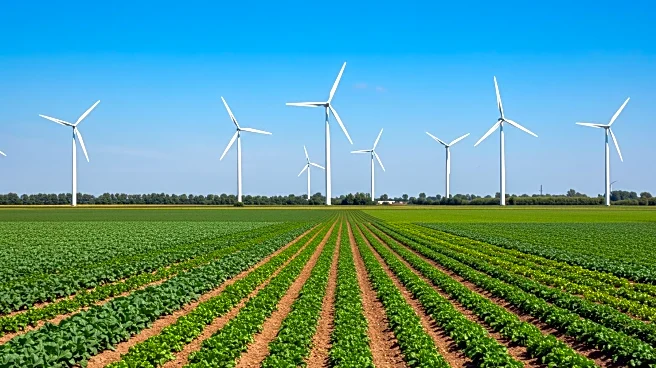What is the story about?
What's Happening?
Brazil has initiated the National Programme for the Reduction of Pesticides, known as Pronara, aimed at reducing pesticide use and promoting sustainable agriculture. President Luiz Inacio Lula da Silva signed the decree establishing the program, which combines research, information, residue monitoring, technical assistance, rural extension, and bio-inputs. The program seeks to support family farmers in producing healthy food sustainably. Kelli Mafort, Executive Secretary of the General Secretariat of the Presidency, described the launch as a 'historic milestone' in the effort to reduce pesticide use, highlighting the decade-long efforts by various organizations and social movements.
Why It's Important?
Pronara represents a significant shift towards sustainable agriculture in Brazil, potentially influencing global agricultural practices. By reducing pesticide use, the program aims to improve food safety and environmental health, benefiting both local communities and international markets. The initiative may serve as a model for other countries seeking to balance agricultural productivity with ecological sustainability. It underscores Brazil's commitment to agroecology and organic production, which could enhance its reputation in the global agricultural sector and attract international partnerships.
What's Next?
The Brazilian government will focus on implementing the measures outlined in Pronara, coordinating actions to ensure the program's success. This may involve collaboration with farmers, researchers, and social movements to promote sustainable practices. The program's progress will be monitored, with potential adjustments based on feedback and results. The initiative could lead to increased investment in sustainable agriculture and bio-inputs, fostering innovation and development in the sector.

















